Chinese Traditional Markets: A Colorful Scroll of Life
Do you know? Shopping is not limited to supermarkets. In the memory of the Chinese people, traditional markets hold a unique charm and significance. They are vibrant places, filled with a variety of goods and delicacies, where you can find anything you desire! Moreover, each local market has its own distinctive features, making it the most nostalgic place for every wanderer. What is the allure of markets? Let's explore together!
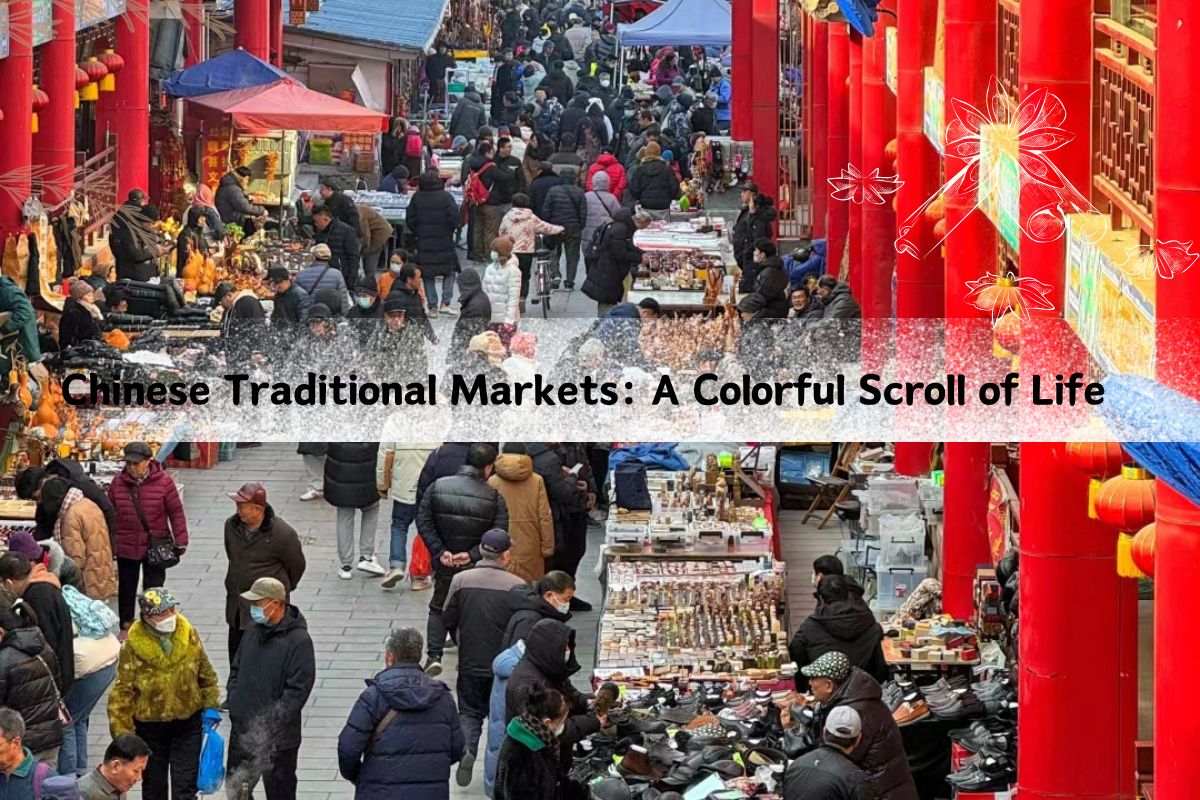
Every morning, as the first rays of sunlight illuminate the earth, the market集市(jí shì) slowly wakes up amidst the bustling cries. The constant calls of vendors resonate like a unique symphony, playing the prelude to market life. Stalls, densely arranged like fish scales, showcase a variety of goods.
集市 (jí shì), noun, market
Examples:
- The market is very crowded on weekends.
周末集市非常拥挤。
zhōu mò jí shì fēi cháng yōng jǐ 。 - We bought some fresh fruits in the market.
我们在集市上买了一些新鲜水果。
wǒ men zài jí shì shàng mǎi le yī xiē xīn xiān shuǐ guǒ 。
Fresh vegetables and fruits, carrying the fragrance of earth and morning dew, are meticulously displayed by the vendors. Their vibrant colors seem like artistic gifts bestowed by nature. The ruby-red apples, resembling shy children's cheeks; the lush green vegetables, akin to the vibrant fields of spring. Then there are agile fish and shrimp, splashing water in basins, seemingly narrating their liveliness.
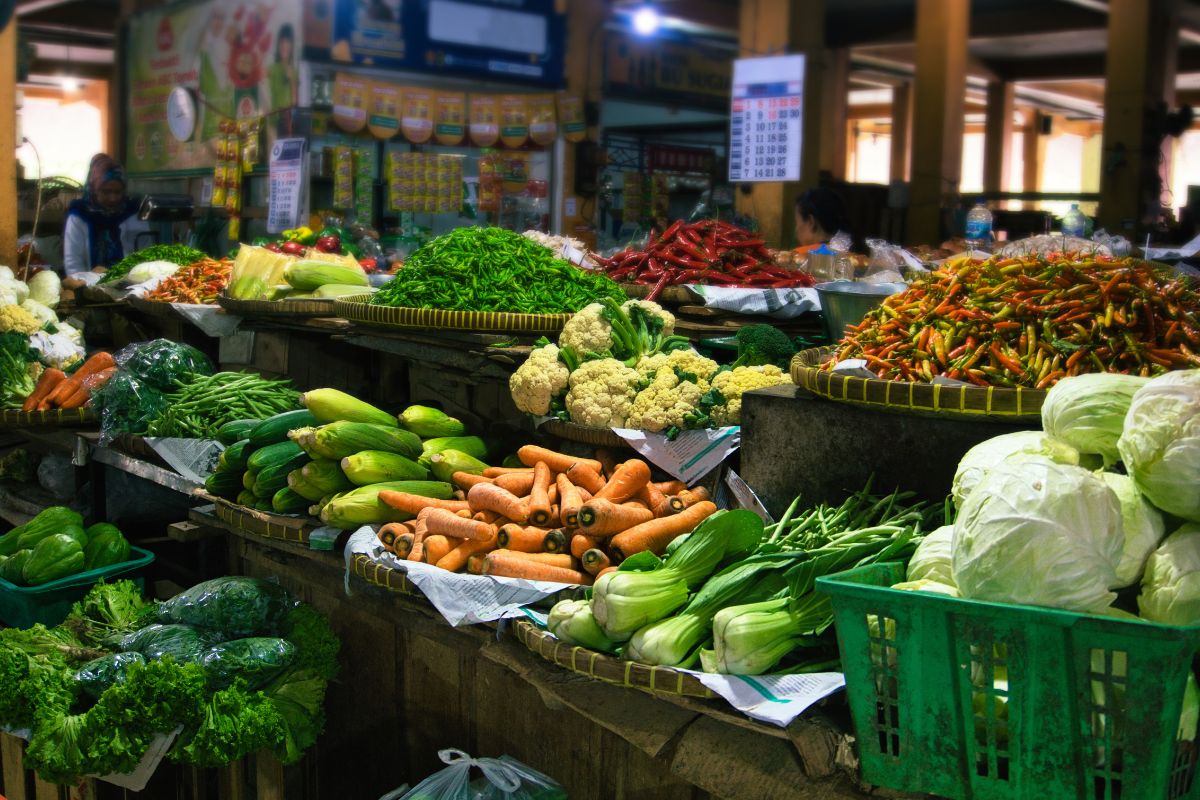
The various aromas of delicious food in the market convey another compelling and heartwarming power. The steamy buns shop, as the steamer opens, a white mist instantly fills the air, carrying the sweetness of flour and the richness of meat, tempting people to stop and taste.
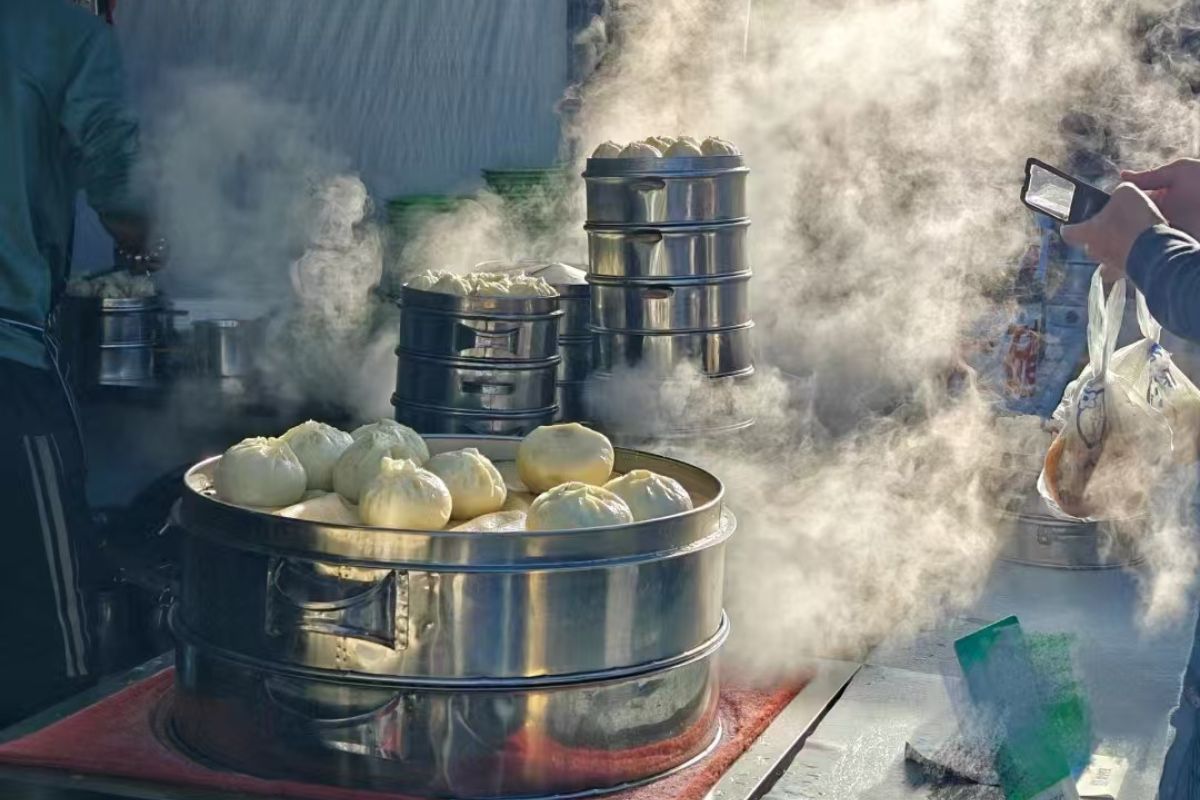
The food stalls摊位(tān wèi) are always crowded, whether it's the crispy fried pancakes with fruits or the soft and sticky tangyuan (glutinous rice balls), each bite exudes the profound taste of home. The freshly made fried pancakes with fruits always make mouths water; the skilled vendor cracks eggs, sprinkles scallions, and spreads sauce, every move pulsating with rhythm. Those who get their hands on them, despite the heat, take a bite, a satisfied smile blossoming on their faces.
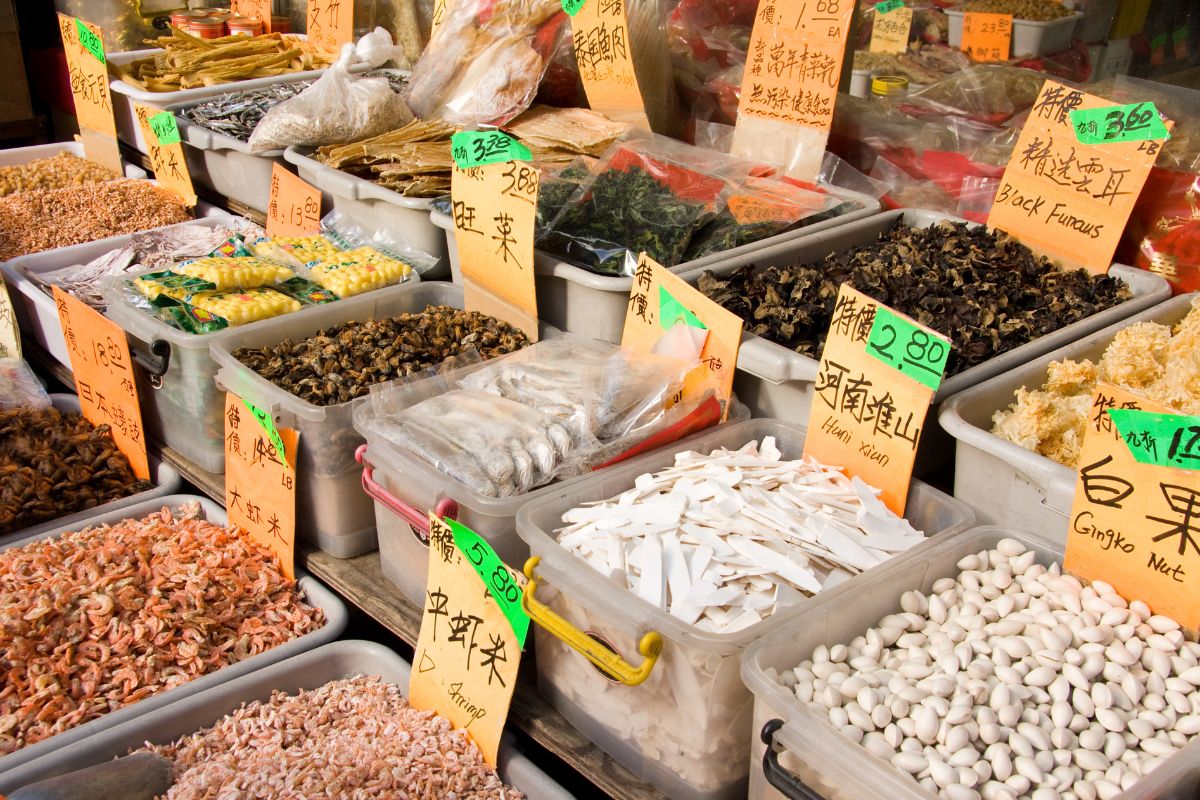
摊位 (tān wèi), noun, stall
Examples:
- There are many stalls in the fair.
集市上有很多摊位。
jí shì shàng yǒu hěn duō tān wèi 。 - He rented a stall to sell his goods.
他租了一个摊位来卖他的货物。
tā zū le yí gè tān wèi lái mài tā de huò wù 。
Traditional morning markets are not just places for trading goods but also spaces for emotional exchange. Amidst the hellos and goodbyes, stories of everyday life unfold. Neighbors share family stories, discuss weather changes, children's growth, and the latest events in the community. These trivial yet life-textured topics bring people closer and deepen emotional connections. Elders impart their experience in choosing ingredients, younger individuals help carry heavy loads, while children play and laugh in the crowd. This mutual assistance and care between individuals vividly embody the traditional Chinese culture of "harmony is valuable" and "neighborly love."
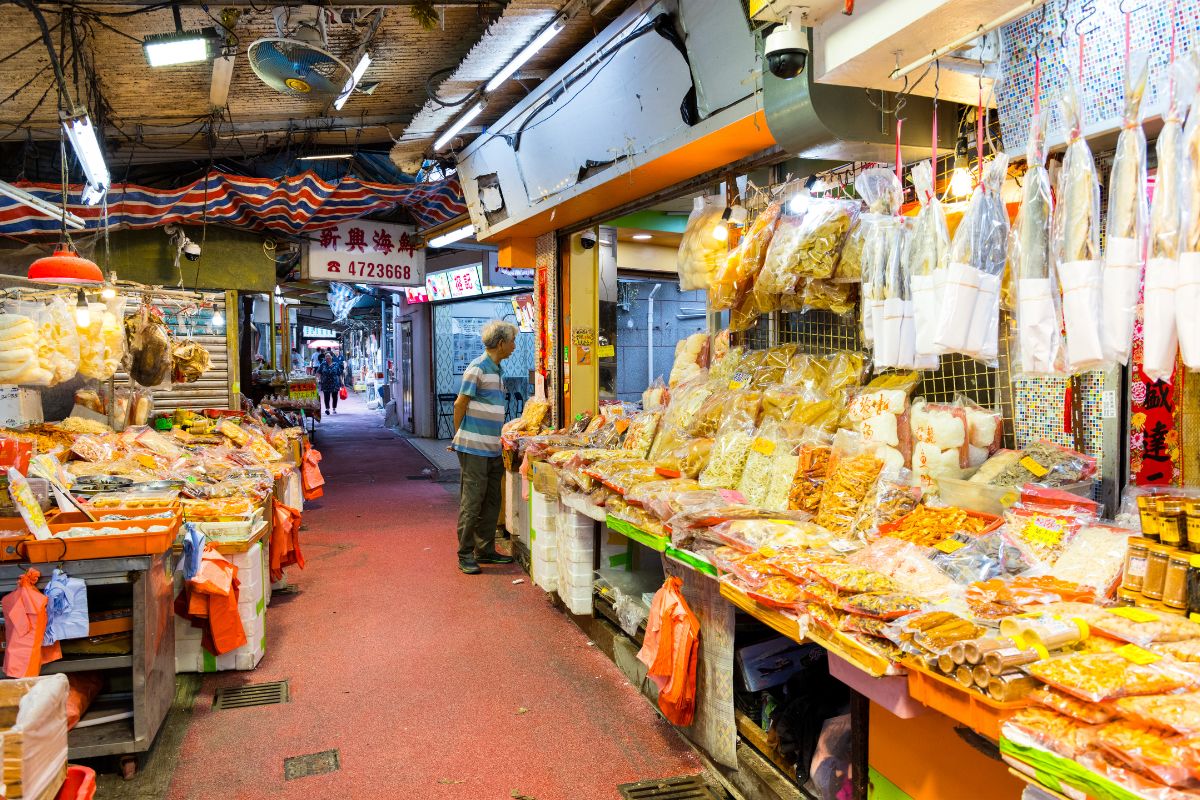
In the bustling crowd, you can see grandparents carefully selecting ingredients to prepare a hearty meal for their family; young couples holding hands, adding household items to their cozy home; and children darting between stalls, eyes filled with curiosity for new wonders. In that moment, the market becomes a warm haven where family bonds unite.